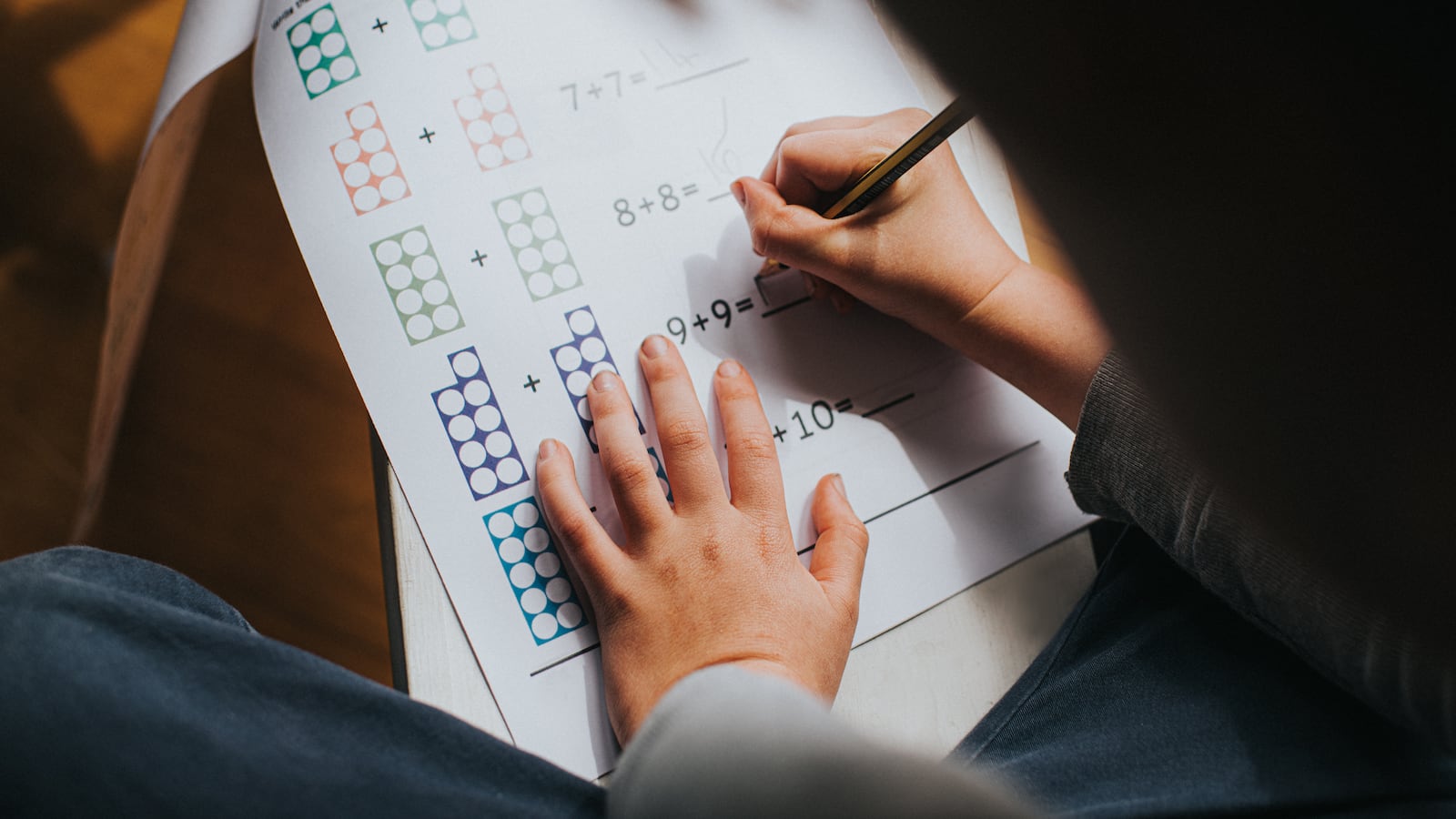It’s Friday, and I slide into my seat. I look up and feel the nervousness trickling in. I hear our fifth grade teacher tell the class we are about to take our weekly math test. She says not to worry about it. If we practiced our problems at home, we should be fine.
“Yeah, right,” I thought. “I’m sure this will be easy.”

All I can think about are the literal tears that covered my homework paper from the nights before. I take some deep breaths and tell myself, “It’s only 10 questions. How hard can it be?” Then I hear the teacher passing out the papers. Each time a paper flutters and lands on a desk near me, it sounds to me like glass shattering. When a blank test arrives on my desk, panic overwhelms me. Everything seems like a blur as I rush to finish.
But as I hand my paper to the teacher, I feel surprisingly good — maybe it’s because the test is over, and maybe (just maybe) it’s because I got a grade I could be proud of. Before the end of the day, though, she hands back the tests. “I thought you would have tried harder after last time,” she tells me. I look down. Another C.
Growing up, math was a struggle and filled me with anxiety. Only thanks to a dedicated teacher who worked with me the summer between elementary and middle school did I gain the foundational knowledge I needed to move forward. From then on, math felt more or less tolerable. Never thrilling. By the end of high school, I vowed never to take another math class if I could help it.
So you might be surprised to hear that I am now an elementary school math specialist who, with the help of encouraging college professors, learned to love math and went on to earn a graduate degree in math education.
Today, I spend my days helping children embrace the subject that long filled me with dread. It’s meaningful and even joyful. Because who better to demystify this often-feared subject than someone who knows first-hand what math anxiety feels like — and also what it feels like to be on the other side of it? That’s me.
I emphasize flexibility by slowing down and backing up, as needed, and by giving students multiple ways to show me they have mastered a concept.
I often think about why so many students find math scary, and I think it has something to do with how we teach students to “plug and chug” numbers without developing the critical thinking skills needed for math reasoning. That’s why my goal is to teach math as a way of thinking, not a system of algorithms.
Two simple ideas guide my lessons: “make the content attainable for students” and “teach students to look at math as something they will always work on” — rather than something they will learn and move on from.
Attainability means I emphasize flexibility by slowing down and backing up, as needed, and by giving students multiple ways to show me they have mastered a concept. It means not grading solely on a right or wrong answer but taking process into account. It means determining where each student is in their math journey and developing a plan for where they need to go. This can be done through vetted assessments, reviewing the results, and working with students to set attainable goals.
Fostering a growth mindset is important no matter the subject. But it’s especially important among students who have internalized the message that math is not something they are good at or even capable of doing. I remind them that math is a skill you never stop learning and perfecting. There will always be something you haven’t yet mastered, and that’s OK. It’s also OK to struggle along the way. We, math teachers, must show our students that it’s not the end of the world if a problem needs to be corrected; it’s an opportunity to learn and grow.
I think it helps that I talk openly about my own math journey. I tell them when we are working on content that used to be a huge struggle for me and recall my past mistakes. They know that I was once where they are now, and now I am teaching them the very subject that once filled me with self-doubt. I model math perseverance.
Braxton Hall has been an elementary school special education teacher for the past six years. As an educator and coach in Kentucky, he works to instill a growth mindset in all of his students — teaching them to face challenges head-on and develop a love for learning new skills.



